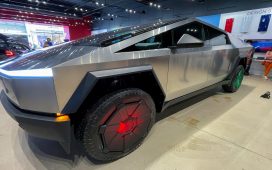Toyoda says knee-jerk reactions are shortsighted.
“What Japan should do first is add technological options. I think regulations and legislation come next,” he said at a recent event, wearing his manufacturers association chairman hat.
“Engineers and workers involved in engine manufacturing would lose their jobs. … We need to be practical and sustainable.”
At risk are jobs tied to everything from piston rings, ignition coils and spark plugs to gearboxes and turbochargers.
This month, Daimler CEO Ola Källenius joined the chorus of concern about the switch to EVs, telling Reuters, “We have to have an honest conversation about jobs.”
Honda, Jaguar, General Motors, Ford, Mini and Volvo are among those making their portfolios heavily, if not entirely, EV-oriented. Honda plans to completely drop combustion engines from all new-vehicle sales by 2040.
Toyota, by contrast, is taking a diversified approach. The automaker wants to sell 8 million electrified vehicles by 2030, but only 2 million will be full electrics or fuel cells. Among other future technologies, Toyoda also is pitching electrofuels as a way to deliver cleaner internal combustion.
Hydrogen-combustion engines could ease the transition by piggybacking on existing technology. For the race, Toyota engineers modified the 1.6-liter, three-cylinder turbocharged engine used in the GR Yaris. They added a high-pressure injection system from Denso Corp., adjusted the spark plugs, strapped on four hydrogen tanks and connected it all with feeder lines.








